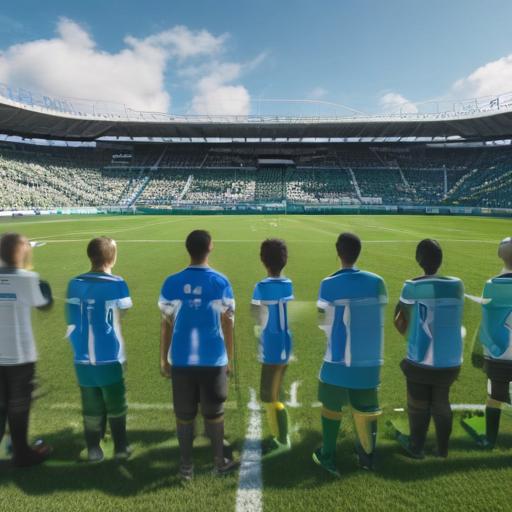The Washington D.C. Council has taken a significant step toward the redevelopment of the RFK Stadium site, potentially paving the way for the Washington Commanders to establish a new home in the city. The council’s recent approval is the first milestone in the journey toward constructing a modern stadium, with a crucial second reading and vote scheduled for September 17. If approved again, the plan will then need the endorsement of D.C. Mayor Muriel Bowser, who has been a proponent of a new stadium for the Commanders for the past decade.
The proposed project carries a hefty price tag of $3.7 billion, aimed at building a covered-roof stadium that can accommodate around 65,000 fans for Commanders games. In addition to the stadium, the development is expected to include mixed-use commercial spaces, green areas, and ample parking facilities. The financing plan intends for the Commanders to contribute approximately $2.5 billion, with the remaining $1.15 billion covered by the district.
While there is excitement surrounding the prospect of a new stadium, the request for over $1 billion in public funding has fueled debate among residents and political figures. Supporters, including Mayor Bowser, argue that the project will stimulate economic growth and opportunities within the district, similar to other stadium deals in cities like Nashville and Buffalo, which needed significant public contributions as well.
Commanders managing partner Josh Harris expressed optimism over the council’s decision, viewing it as pivotal for both the team and the community. He reminisced about the memories shared at RFK Stadium and emphasized the importance of reigniting that spirit for future generations.
The project has seen adaptations since its initial proposal in April, including commitments from the Commanders to manage potential cost overruns due to rising global tariffs. The team has also made arrangements with local labor unions to facilitate the development, which contributed to the council’s positive vote. Notably, the Commanders plan to relocate their business operations back to D.C. from Maryland, reinforcing their commitment to the city’s revitalization.
Interestingly, the historical context of the RFK Stadium adds another layer to this development. The original stadium, which hosted numerous sports and entertainment events from 1961 until its closure in 2017, holds a special place in the hearts of many local fans.
As Washington moves closer to realizing the redevelopment of the RFK site, the community is left hopeful for the potential economic and cultural revival that a new stadium could bring, enriching the district’s future as a vibrant hub for sports and events.
